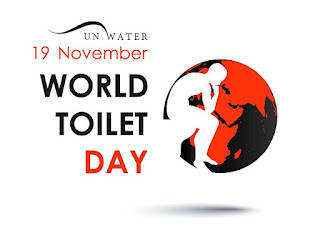What’s UN World Toilet Day?
In 2013, a joint initiative between the Government of Singapore and World Toilet Organization led to Singapore’s first UN resolution, entitled “Sanitation for All”, calling for collective action to address the global sanitation crisis through the commemoration of World Toilet Day. The resolution was co-sponsored and adopted by 122 countries at the 67th session of the UN General Assembly in New York. On July 24, 2013, World Toilet Day on 19 November became an official UN day.
Each year UN World Toilet Day calls on the global community to do more to address the sanitation crisis. The theme for 2016 is “Toilets and Jobs.” World Toilet Day is THE day for action. It is the day to raise awareness about all the people who do not have access to a toilet, and the urgent need to end the sanitation crisis. And it is the day to stand up (or sit down or squat if you prefer) to do something about it.
Singapore's first UN resolution adopted; now, every Nov 19 is World Toilet Day
The United Nations (UN) has agreed to mark World Toilet Day on Nov 19, thanks to a Singapore initiative.
Singapore had tabled the resolution, Sanitation for All, to raise awareness of the global challenge of sanitation and toilets.
It is the first time Singapore, since it became a UN member 48 years ago, had put a resolution before the UN's General Assembly of 193 members. The resolution was supported by 120 countries, said the the Ministry of Foreign Affairs and Ministry of the Environment and Water Resources in a joint statement on Wednesday.
World Toilet Day
World Toilet Day (WTD) is an official United Nations international observance day on 19 November to inspire action to tackle the global sanitation crisis. Worldwide, 4.2 billion people live without "safely managed sanitation" and around 673 million people practice open defecation. Sustainable Development Goal 6 aims to "Ensure availability and sustainable management of water and sanitation for all". In particular, target 6.2 is to "End open defecation and provide access to sanitation and hygiene". When the Sustainable Development Goals Report 2020 was published, United Nations Secretary-General António Guterres said, "Today, Sustainable Development Goal 6 is badly off track" and it "is hindering progress on the 2030 Agenda, the realization of human rights and the achievement of peace and security around the world".
World Toilet Day exists to inform, engage and inspire people to take action toward achieving this goal. The UN General Assembly declared World Toilet Day an official UN day in 2013, after Singapore had tabled the resolution (its first resolution before the UN's General Assembly of 193 member states). Prior to that, World Toilet Day had been established unofficially by the World Toilet Organization (a Singapore-based NGO) in 2001. UN-Water is the official convener of World Toilet Day. UN-Water maintains the official World Toilet Day website and chooses a special theme for each year. In 2020 the theme was "Sustainable sanitation and climate change". In 2019 the theme was 'Leaving no one behind', which is the central theme of the Sustainable Development Goals. Themes in previous years include nature-based solutions, wastewater, toilets and jobs, and toilets and nutrition. World Toilet Day is marked by communications campaigns and other activities. Events are planned by UN entities, international organizations, local civil society organizations and volunteers to raise awareness and inspire action.
Toilets are important because access to a safe functioning toilet has a positive impact on public health, human dignity, and personal safety, especially for females. Sanitation systems that do not safely treat excreta (feces) allow the spread of disease.Serious soil-transmitted diseases and waterborne diseases such as cholera, diarrhea, typhoid, dysentery and schistosomiasis can result.


